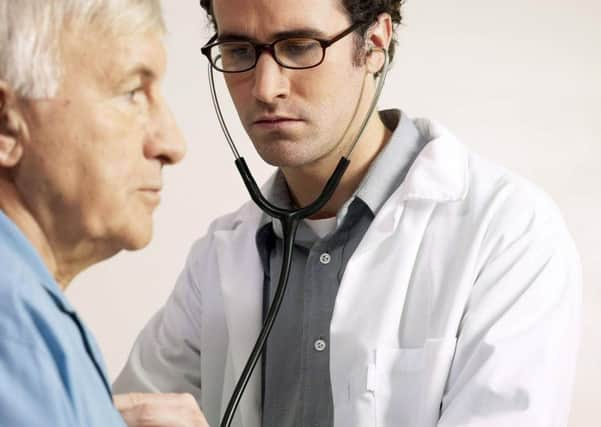New roles to help take pressure off GPs


In the biggest shake-up within doctors surgeries for 15 years, GP groups from across the county have formed 16 new primary care networks who will share a group of new professionals.
Each network will have a social prescriber whose role is to link up patients who may be socially isolated or have long-term physical or mental health conditions, with services that can help improve their lives.
Advertisement
Hide AdAdvertisement
Hide AdThe aim of the initiative, which is part of the NHS 10-year plan, is to free up GP time and also to make people more aware of the various voluntary groups and organisations which are on offer throughout the county.
Eleven social prescribers are currently being recruited for Northamptonshire and should be in place by September.
Dr David Smart, a GP partner at Leicester Terrace Health Care Centre who has been a general practitioner for 30 years, said the new social prescribers will help with workload pressures.
He said: “The opportunity to really restructure primary care because GPs are so overloaded. We are just about on our knees.
Advertisement
Hide AdAdvertisement
Hide Ad“This is not fluffy stuff and it’s something we’re passionate about it.
“Changing people’s behaviour so they eat more healthily, exercise regularly and stop smoking can make 40 percent difference to health outcomes, whereas the NHS makes about 10 per cent.
“The role isn’t just about signposting people to services, it is about ensuring get the right support from relevant community resources and managing that process.
“We are delighted that each PCN is recruiting a social prescriber and in time, we hope this is just the start and that in the future, more candidates will be recruited.”
Advertisement
Hide AdAdvertisement
Hide AdHe added: “Social prescribing could be key to improving people’s happiness and wellbeing in Northamptonshire and helping them flourish.
“We promote the ’10 keys to happiness’ from the charity Action for Happiness to our patients and to our GPs to increase their resilience.
“We know how effective this can be, particularly for people with mild depression.
“Furthermore, many GP practices are on their knees and having social prescribers will reduce the number of patients in primary care and alleviate some of the pressures.”
Advertisement
Hide AdAdvertisement
Hide AdThe doctor also said he thought the clinical commissioning groups, which commission services, could have done more prevention work over the past few years and is pleased this new initiative is coming in.
Social prescribing has been used elsewhere in the country and has had good results.
Dr Toby Rose from Burton Latimer Medical Centre, which is part of the new Kettering & South West Rural primary care network, says it’s a hugely valuable and much-needed role which will make a big difference to general practice.
Dr Rose said: “Every practice has people with complex socio-economic problems, but we only get 10 minutes per patient. This isn’t long enough to understand what help they may need and know where to direct them. To have a social prescriber on the team whose job is to focus on these patients is going to be hugely beneficial to our patients.”
Advertisement
Hide AdAdvertisement
Hide Ad“The social prescriber will keep up to date with all the services available locally, which can change weekly and are impossible for GPs to keep track of. Local knowledge is key to responding to different needs. For instance, ours is a rural practice where we see a lot of social isolation, whereas other practices in towns and cities may have patients that have issues caused by social deprivation.
“Northamptonshire NHS is unique in recruiting social prescribers across the county at scale. This will create a valuable network of social prescribers who can link up and share information across the different PCNs. This joined-up approach will allow PCNs to work more closely and ensure patients are referred to the right services. We are really excited about recruiting our first social prescriber.”
Apply for one of the 11 new roles here.
Sarah Ward, Local Democracy Reporting Service